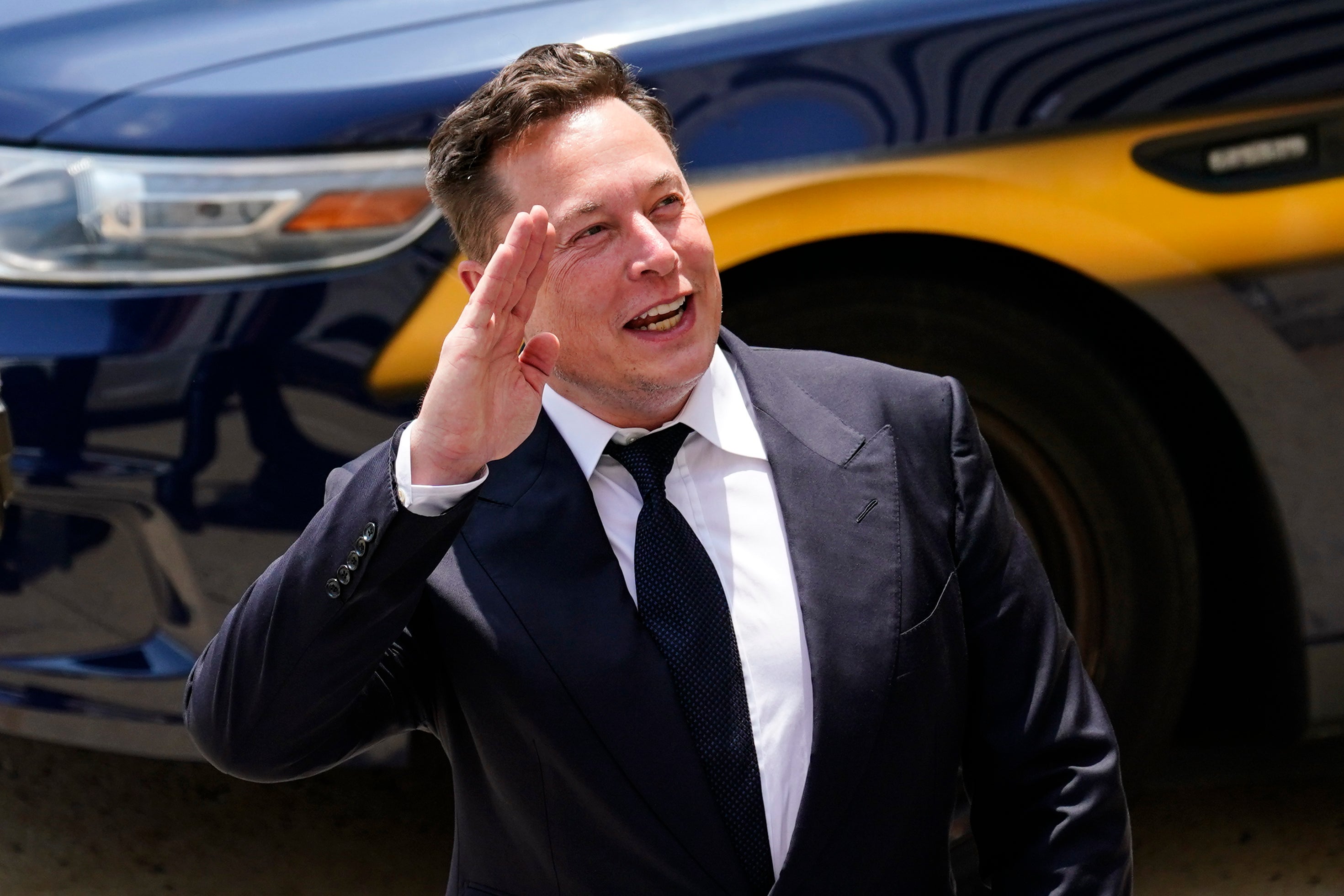Elon Musk asked Twitter to decide on his tax bill. An outrage? Sure. But ask yourself who’s really at fault
Musk asked his followers whether he should sell a chunk of his shares and pay tax on the proceeds. They said yes and he appears to have confirmed it will go ahead. A Democratic senator has called the affair outrageous, but it is the inaction of lawmakers that let it happen

Ready for the great Tesla selloff? It’s apparently coming. Elon Musk has tweeted as much.
We’ll get into that in a moment, but first the background: Never one to miss an opportunity to draw attention to himself, the tycoon waded into the debate about how to tax the world’s billionaires by launching a Twitter poll among his 62.5m followers which asked them whether he should sell a sizeable chunk (10 per cent) of his car maker’s shares.
This would realise a sizeable capital gain for Musk which he would, in theory, be required to pay a sizeable amount of tax on.
His intervention came amid proposals from congressional Democrats in America that could require their home grown billionaires to contribute a little more to their country by paying tax on the sometimes dizzying unrealised paper gains in stock prices they are apt to sit on.
Twitter said yes, and solidly so. The result was 58 per cent in favour of the Tesla selloff to 42 per cent against. In response to the result, Tesla shares immediately fell when trading opened in Frankfurt, where they have a listing.
One of the things that has sustained their staggering price is their comparative rarity. If Musk is as good as his word, the shares will be somewhat less rare.
Musk has since at least hinted that the sale will go ahead, which should provide for some considerable excitement.
Twitter user Galaxy Heroes GHC (@EMTSLA) on Monday asked whether the poll went the way he wanted it to. The terse response from Musk read: “I was prepared to accept either outcome.”
It should be noted that this tweet isn’t on the main @ElonMusk feed. If you want to see it you’ll need to click on his “Tweets & replies” tab and scroll down a little way.
It isn’t just Musk’s credibility that is at sake were he to renege on his poll pledge. Financial regulators tend to get quite cross when people like him make statements with the potential to impact the price of shares in public companies like Tesla. And it surely has had an impact. The Frankfurt fall testifies to that.
Musk has form here. You may recall a previous social media fuss after he stated on Twitter that he was considering taking Tesla private and that he had “funding secured” for the move. The putative buyout never materialised.
In response, the Securities & Exchange Commission imposed a fine. It also stripped Musk of the Tesla chairmanship for three years and required company lawyers to pre-approve financially sensitive tweets. The Twitter poll, and its result, would certainly seem to quality as financially sensitive.
Naturally, it has generated considerable heat, as Musk clearly intended.
Ron Wyden, the senior senator from Oregon, and a Democrat, tweeted in response: “Whether or not the world’s wealthiest man pays any taxes at all shouldn’t depend on the results of a Twitter poll. It’s time for the Billionaires Income Tax.”
The Tesla CEO hit back with some spectacularly tasteless insults centring on Wyden’s Twitter pic. Wyden, a former educator, and the ranking member of the Senate Finance Committee, will likely shrug that off. He’s surely heard worse.
Nonetheless, while he’s not wrong – it truly is outrageous that it takes the result of a Twitter poll to decide whether a gazillionaire pays tax – isn’t it time to ask who is at fault for that? Clue: it’s not Musk.
The problem with the vast, unrealised, paper wealth of people like him, Jeff Bezos, Mark Zuckerberg and the rest, and of their comparatively limited contributions to the societies they profit from, is scarcely new.
Warren Buffett, the legendary investor known as the “Sage of Omaha”, pointed out the absurdity of his paying a lower marginal rate of tax than his cleaner some 14 years ago, at which time he was the world’s second richest man.
Since then not much has changed, except that the number, and holdings, of the gazillionaire class have grown. If their contributions have not grown in step, surely that’s on Wyden and his colleagues and peers around the world.
The worship of democratic politicians at the altar of the moneyed classes in preference to the people who elect them may be one reason why faith in democrat government is a shaky as it has become. So forget Twitter, Mr Wyden, it’s time for action in the American legislature.
Join our commenting forum
Join thought-provoking conversations, follow other Independent readers and see their replies
Comments
Bookmark popover
Removed from bookmarks